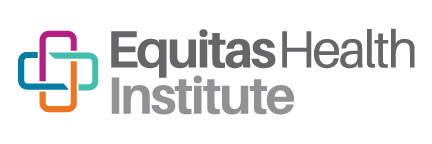COVID-19 and Pivoting to Virtual Learning
The Institute has not been immune to the vast and unprecedented impacts of the COVID-19 public health emergency. Before the pandemic, the vast majority of our training and education work had been conducted in person. In some cases, training would be administered in a small room to a handful of people in close quarters. At the other extreme, our trainers would address packed auditoriums filled with hundreds of participants. As you can imagine, while in-person training is not impossible, the circumstances where it can be done are now quite limited. In addition, many organizations now have staffs that, at least for the time being, largely work from home. While in-person training has a proven record of being highly impactful and effective, we at the Institute had to quickly adapt to a new environment where our proven methods were no long applicable to the tasks of training and providing consultation to internal and external audiences.
Over the past four months, we have massively upscaled our capability to deliver trainings virtually in a number of different formats. In total, over the past four months Institute staff have conducted nearly 50 live webinar trainings, reaching a total audience of over 1,000 participants. Beyond that, we have a newfound capability to record our trainings. We know that live trainings are not the best fit for every organization, so providing asynchronous content is now an option that we can offer to all of our clients. Finally, we are also beginning production on short training modules about individual concepts and topics, such as pronouns and gender-inclusive language. In short, during this crisis we have developed a suite of new tools to fill the training and education needs of any organization that might be interested in our services.
Virtual learning, in all its forms, helps keep organizations and providers connected to educational resources without creating undue risk, either to participants or others they may come into contact with later. Virtual learning also creates opportunities for increased access to content that isn’t dependent on being at a specific physical locations or access to transportation. Despite the pandemic, there is still a pressing need for LGBTQ+ cultural humility training. In fact, LGBTQ+ populations have been particularly hard-hit by COVID-19, so the need to make sure that health care settings are welcoming and inclusive has never been greater. The Institute has adapted and risen to meet these challenges, and proven itself a more effective educational resource than ever before. If you’d like to know more about the services that the Institute can provide, please contact Lead Trainer Ramona Peel at ramonapeel@equitashealth.com.
